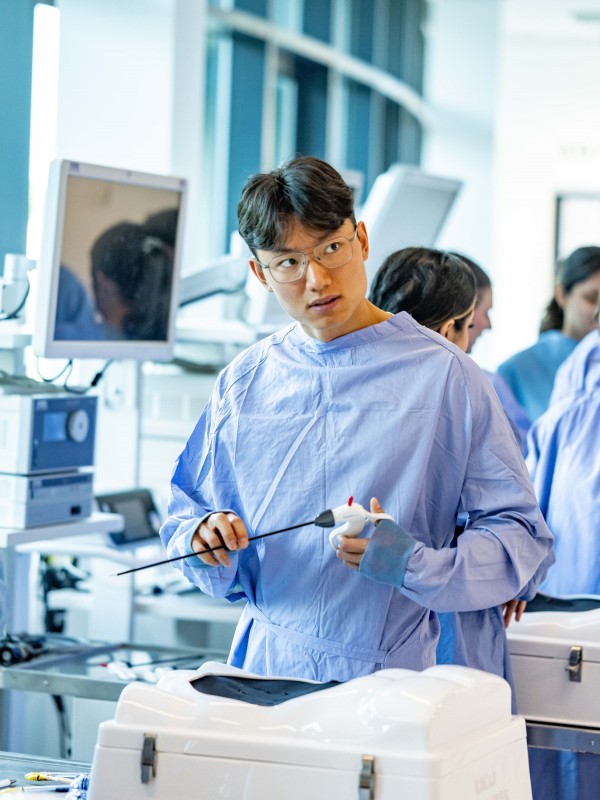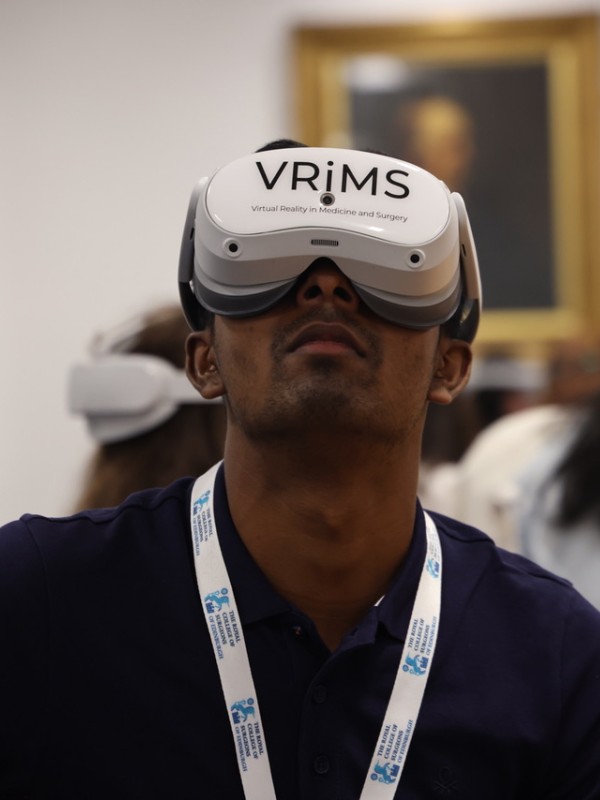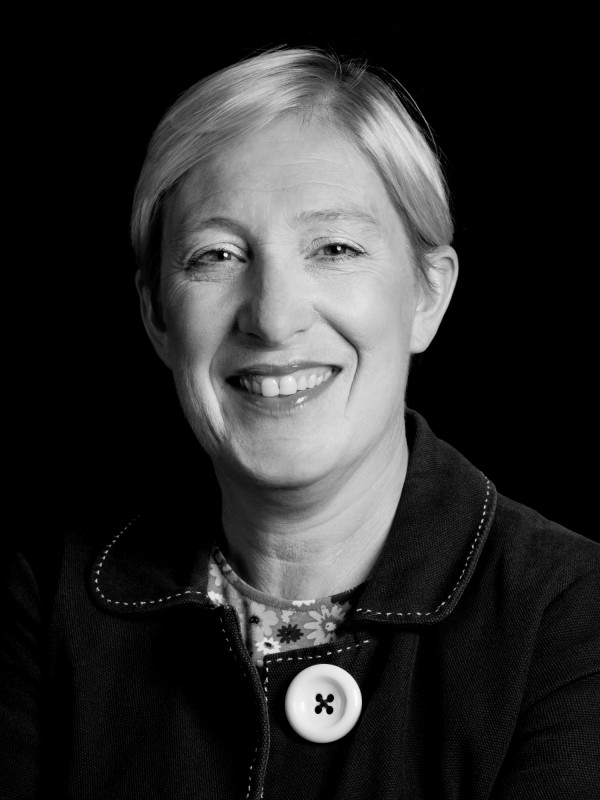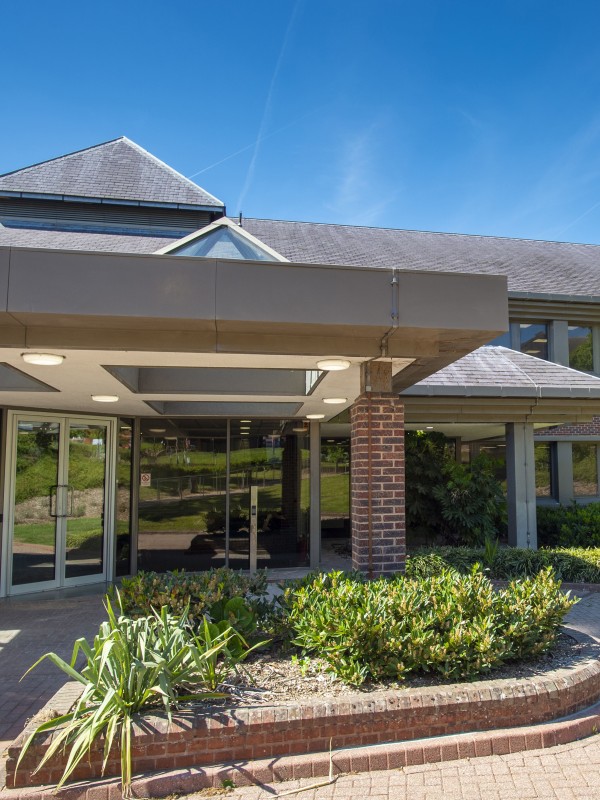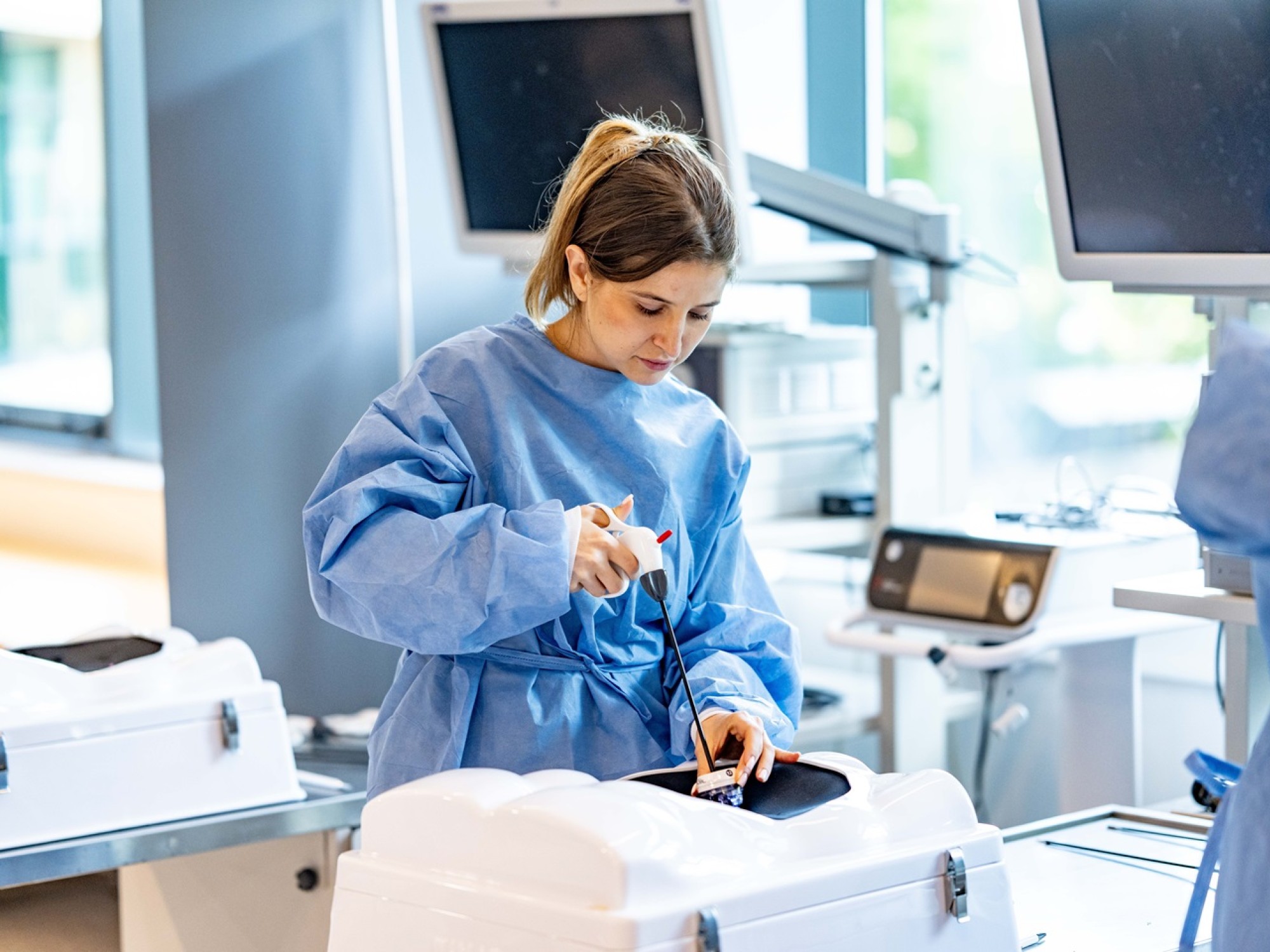
- Medicine (Graduate Entry)
BMBS — 2027 entry Medicine (Graduate Entry)
On our innovative four-year course, you'll gain the academic requirements you need to begin working as a foundation doctor in the UK or abroad. You'll practise your skills in our exceptional healthcare facilities and gain clinical experience on placements with our partner NHS trusts.
4,161+ people have created a bespoke digital prospectus
Why choose
this course?
- Study a hands-on curriculum where you’ll learn to meet the needs of your patients by developing your knowledge of anatomy, physiology and pathology.
- Learn essential skills in communication, the psychological and social factors of patient care, and skills in forming a differential diagnosis and patient management.
- Develop your medical skills in our multimillion-pound health education facility and take part in supervised practical work in safe and simulated environments.
- Learn from experts in our Centre for Anatomical and Surgical Education (CASE) and explore the application of technologies in modern healthcare, such as virtual reality.
- Complete structured clinical placements with our partner National Health Service (NHS) trusts.
International students: Applications are still open for Medicine (Graduate Entry) - 2026 entry - don't miss your chance to apply for a September 2026 start.
World Directory of Medical Schools
We are listed on the World Directory of Medical Schools and are recognised by the General Medical Council as a new school under review.
Statistics
Top 15 in the UK
The University of Surrey is ranked 14th for overall student satisfaction* in the National Student Survey 2025
*Measured by % positivity based on Q1-24 for all providers listed in the Guardian University Guide league tables.
What you will study
Our spiral curriculum facilitates learning at different speeds and in different styles. On this course, theory and practice go hand in hand.
As you explore different conditions, you’ll learn relevant anatomy, physiology, pathological, social and psychological factors as you develop diagnostic and management skills.
At the same time, you’ll take part in supervised practical work in safe and simulated environments, before moving into structured clinical placements at our partner NHS trusts.
As the course progresses, there will be opportunities to learn in a number of medical and surgical specialities, with placements in trusts with outstanding reputations in areas from oncology to ophthalmology.
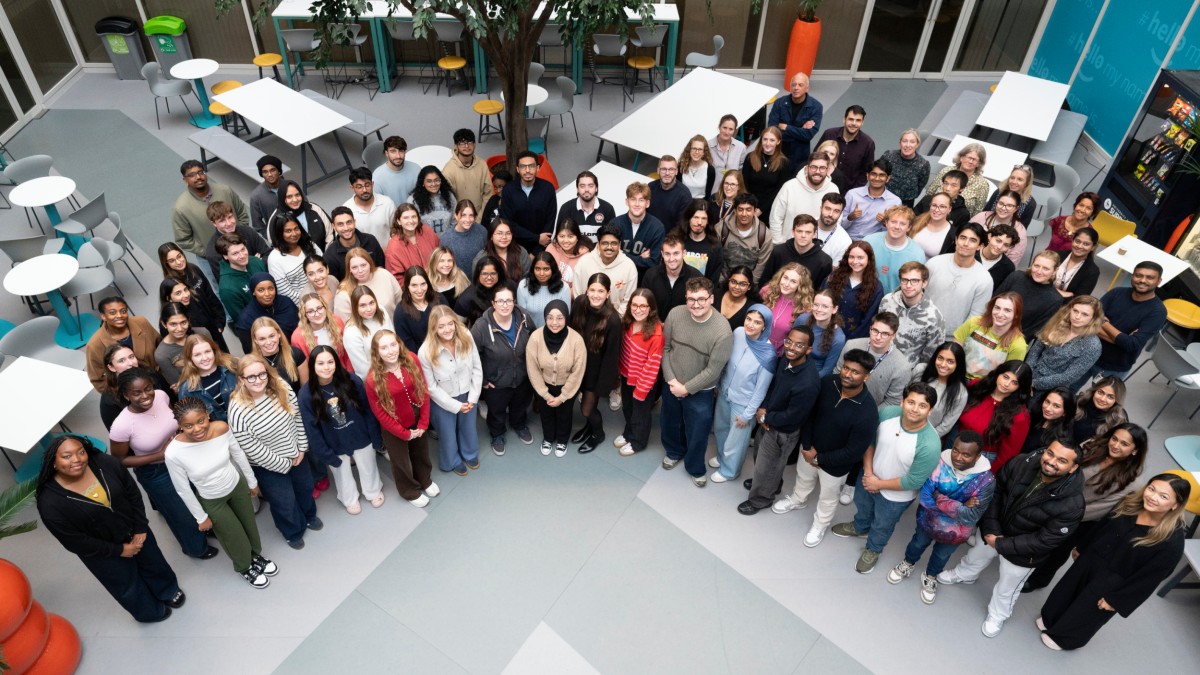
Meet the team
Watch the School of Medicine's Meet the Team webinar.
Accreditation process
All new medical schools are subject to an extensive period of quality assurance. In the UK, the General Medical Council (GMC) is the body responsible for ensuring that medical education and training are of a high standard and that new medical schools meet the requirements set out in Promoting excellence: standards for medical education and training.
We have begun the comprehensive process of accrediting our programme, and have successfully completed a number of key stages to date. The GMC will monitor our programme on a rolling basis. The final-stage assessment and approval for the award of a UK medical degree is made when the first cohort graduate. The University of Exeter will act as our contingency school during this time, providing support with our programme development and awarding medical degrees accredited by the GMC, should our accreditation be delayed.
One Health, One Medicine
At Surrey we understand the link between human, animal and plant health and our shared environment. We have implemented a ‘One Health, One Medicine’ approach to our teaching and research, bringing together expertise from a broad range of multidisciplinary areas.
Please note: this course does not include an integrated foundation year.
Year 1
The first year of our programme ensures you start to acquire the knowledge and skills that underpin modern medical practice.
The programme comprises eight teaching blocks with learning centred on a medical scenario alongside special study units. This includes an introduction to graduate entry medicine block covering foundations of medicine. All students will learn clinically relevant anatomy in our dissection laboratory from human prosections, alongside ultrasound guided surface anatomy teaching and live streaming of patient surgery. Full human dissection will be available to a proportion of interested students as part of a student-selected, special study unit.
Year 2 and Year 3
During these two years your learning will be based in our associated NHS trusts. Your placements will take place in a wide range of primary and secondary care specialities, where you’ll benefit from direct and experiential learning alongside all members of the clinical team. Learning will take place in the acute setting, from the emergency department to the operating theatre. As well as in clinics, inpatient and outpatient facilities and in a range of primary care, community and innovative services.
Year 4
In your final year, you’ll learn in placement blocks as senior students, immersed in the clinical team and developing your diagnostic and management skills to pass the medical licensing assessment. You’ll complete your medical degree, ready to start working as a foundation doctor.
The structure of our programmes follow clear educational aims that are tailored to each programme. These are all outlined in the programme specifications which include further details such as the learning outcomes.
Modules
Modules listed are indicative, reflecting the information available at the time of publication. Modules are subject to teaching availability, student demand and/or class size caps.
The University operates a credit framework for all taught programmes based on a 15-credit tariff.
Course options
Year 1 - BMBS
Semester 1 & 2
Core
In the first year of the Graduate Entry Medicine programme students will start to acquire the knowledge and skills that underpin modern medical practice. Students will work across four integrated assessment strands Medical Knowledge, Clinical Practice, Professional Development and Special Study Units. Learning will take place in a variety of large group lectures and small group activities, including those where team-based learning will be utilised as a tool to consolidate knowledge and develop teamwork. Students will be provided with opportunities to apply and practise their knowledge and skills, working closely with professionals in the Surrey Clinical Simulation Centre (SC2), anatomy facilities at the Centre for Anatomical and Surgical Education (CASE), and while on clinical community placements (General Practice and Mental Health). Students will learn and demonstrate clinical competencies this year as part of the Clinical Practice curriculum strand in the Clinical Simulation Centre and on real patients whilst on community placement.Students will undertake Objective Structured Clinical Examinations (OSCEs) which require taking a history from a patient/simulated patient, completing an examination, and performing a practical skill. Professional Development Groups will provide a supportive environment in which students can acquire deeper learning from placement experiences and explore what it means to be a medical professional. Students will also complete a summative Special Study Unit (SSU) in the theme of Biosciences.
View full module detailsYear 2 - BMBS
Semester 1 & 2
Core
In the second year of the programme the focus of teaching and learning moves towards the clinical environment. Students build upon the skills and knowledge that they have already developed that underpin modern person and patient centred clinical practice. Students will continue to work across integrated teaching, learning and assessment themes: Medical Knowledge, Clinical Practice, Professional Development and the Student Selected Special Study Units (SSUs). Students will continue to develop their Medical Knowledge of the medical sciences (biomedical, psychological, sociological, population health) that underpin medical practice, building on the knowledge previously gained in the programme. Further Medical Knowledge will develop through interactions with patients and with a wide range of NHS staff, and through taught sessions and tutorials. In the area of Clinical Practice students will continue to acquire the core clinical skills and professional behaviours that underpin person and patient centred clinical practice. Developing the skills and attitudes required to address health inequalities and perform professional advocacy roles. Students will be given feedback on developing professionalism through working with assessors who are experienced professionals and who hold and maintain professional registration in either Medicine or Nursing/Midwives. Students will also undertake clinical skills assessments working with real patients as appropriate. Professional Development Teaching will provide a supportive environment in which students can learn from placement experiences and explore what it means to be a medical professional. Within the Special Study Unit (SSU) programme, students will consider clinical care and its essential support services and will be required to locate and critically evaluate evidence to support conclusions and recommendations to improve healthcare via a variety of methods, with a developing ability to review the reliability, validity, significance and generation of this evidence. Students will undertake both a Medical Humanities and an Improving Healthcare SSU each within a 2 week block, assessed by coursework. Students may register for Clinical Pathways 1 following the successful completion of Graduate Entry Medicine Year 1 in its entirety.
View full module detailsYear 3 - BMBS
Semester 1 & 2
Core
In year 3 of the programme the focus of teaching and learning will continue to shift further towards the clinical environment. Students will build upon the skills and knowledge that they have already developed that underpin modern person and patient centred clinical practice. Students will continue to work across integrated teaching, learning and assessment themes: Medical Knowledge, Clinical Practice and the Student Selected Special Study Units (SSUs). Students will continue to develop their Medical Knowledge of the medical sciences (biomedical, psychological, sociological, population health) that underpin medical practice, building on the knowledge previously gained. Student medical Medical Knowledge will develop through interactions with patients and with a wide range of NHS staff, and through taught sessions and tutorials In the area of Clinical Practice students will continue to acquire the core clinical skills and professional behaviours that underpin modern person and patient centred clinical practice. Developing the skills and attitudes required to address health inequalities and perform professional advocacy roles. Students will be given feedback on developing professionalism through working with assessors who are experienced professionals and who hold and maintain professional registration in either Medicine or Nursing. Students will also undertake clinical skills assessments with patients as well as three termly Objective Structured Clinical Examinations in which they will demonstrate a range of clinical and communication skills such as history taking, examination skills, procedures, and clinical reasoning. Professional Development groups will provide a supportive environment in which students can learn from placement experiences and explore what it means to be a medical professional. Within the SSU programme, students will consider scholarly activities related to the wider discipline of medicine. Students will undertake two longitudinal SSUs of three weeks duration each in the areas of Medical Humanities and Doctor as Teacher, both cumulating in an SSU Assessment conference. Students may register for Clinical Pathways 2 Year 3 following the successful completion of Clinical Pathways 1 Year 2 in its entirety.
View full module detailsYear 4 - BMBS
Semester 1 & 2
Core
In Preparation for Medical Practice Year 4, the focus of the students’ teaching and learning will continue to shift towards becoming an “apprentice” within the clinical environment. Students will build upon the skills and knowledge that they have already developed that underpin modern person and patient centred clinical practice. Students will continue to work across integrated teaching, learning and assessment themes: Medical Knowledge, Clinical Practice and the Student Selected Elective programme. Students will continue to develop Medical Knowledge of the medical sciences (biomedical, psychological, sociological, population health) that underpin medical practice, building on the knowledge previously gained. Students’ Medical Knowledge will develop through interactions with patients and with a wide range of NHS staff, and through taught sessions and tutorials. In the area of Clinical Practice, students will continue to acquire the core clinical skills and professional behaviours that underpin modern person and patient centred clinical practice. Students will develop the skills and attitudes required to address health inequalities and perform professional advocacy roles. Students will be given feedback on professional development through working with assessors who are experienced professionals and who hold and maintain professional healthcare registration. Students will also undertake clinical skills competencies including clinical assessments on patients. Clinical supervisors will provide a supportive environment in which students will learn from their placement experiences. Students will explore what it means to be a medical professional as well as considering their personal career development. Within the Elective placement, students will experience a wider perspective of medicine, as practiced both within the NHS in the UK or internationally around the globe. Students may register for Preparation for Medical Practice following the successful completion of Clinical Pathways 2 in its entirety.
View full module detailsTeaching and learning
You'll learn from world-leading academics and clinicians who have a wide range of clinical expertise.
Your teaching will be delivered through a combination of:
- Group work (e.g. team-based learning)
- Lectures
- Placements
- Role plays and immersive simulations
- Tutorials and seminars
- Laboratory practicals
- Clinical skills teaching.
Assessment
We use a variety of methods to assess you, including:
- Coursework
- Presentations
- Knowledge tests
- Portfolio development and reflections
- Practical assessments
- Objective structured clinical exams (OSCEs)
- Workplace-based assessment (WPBA).
General course information
Contact hours
Contact hours can vary across our modules. Full details of the contact hours for each module are available from the University of Surrey's module catalogue. See the modules section for more information.
Timetable
New students will receive their personalised timetable in Welcome Week.
Teaching can take place on Monday to Friday between 9am-6pm. Due to the practical nature of the course, there may be timetabled sessions on Wednesday afternoons.
Location
Our medicine, paramedic science, nursing and midwifery, and CPD health sciences courses are taught at the Kate Granger Building (30 Priestley Road) on the Surrey Research Park.
You’ll be expected to attend clinical placements off campus. Please see the placements section for more details.
We offer careers information, advice and guidance to all students whilst studying with us, which is extended to our alumni for three years after leaving the University.
On successful completion of your studies, you'll have the academic requirements needed to begin working as a foundation doctor.
Our course provides the grounding to practise medicine worldwide. If your ambition is to practise as a doctor outside the UK – whether in your home country or elsewhere – you can be confident that your degree will be recognised in most countries.
A BMBS Medicine degree from the University of Surrey will also mean you can work in medical research, perhaps in one of our many internationally respected research institutes and centres.
Visit the NHS website to find out more about training as a doctor.
Throughout your studies, you’ll put theory into practice in our Clinical Simulation Centre, a state-of-the-art facility in our Kate Granger Building. This immersive learning environment – featuring model wards, theatres and an ambulance bay – places you at the centre of clinical scenarios, and you’ll have access to a range of diagnostic and clinical resources similar to those found in NHS hospitals.
Our Independent Clinical Learning Facility in the Kate Granger Building is also available for you to use with, or without, supervision – so you can learn and develop skills and confidence at your own pace.
You’ll learn fundamental skills in anatomy and surgery in our new Centre for Anatomical and Surgical Education (CASE). In CASE’s anatomy suite you will carry out anatomical examinations and study dissected prosections and human bones. Full human dissection is available if you have opted for this as part of a special study unit.
You will also experience simulated learning in CASE through our collaborations with Virtual Reality in Medicine and Surgery (VRiMS) and the Minimal Access Therapy Training Unit (MATTU). This includes using virtual reality headsets embedded with 3D anatomy software to learn a variety of surgical techniques, and gaining insight into surgery through live links to operating theatres.
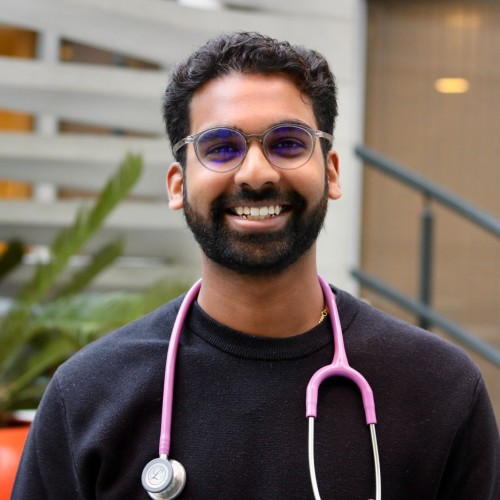
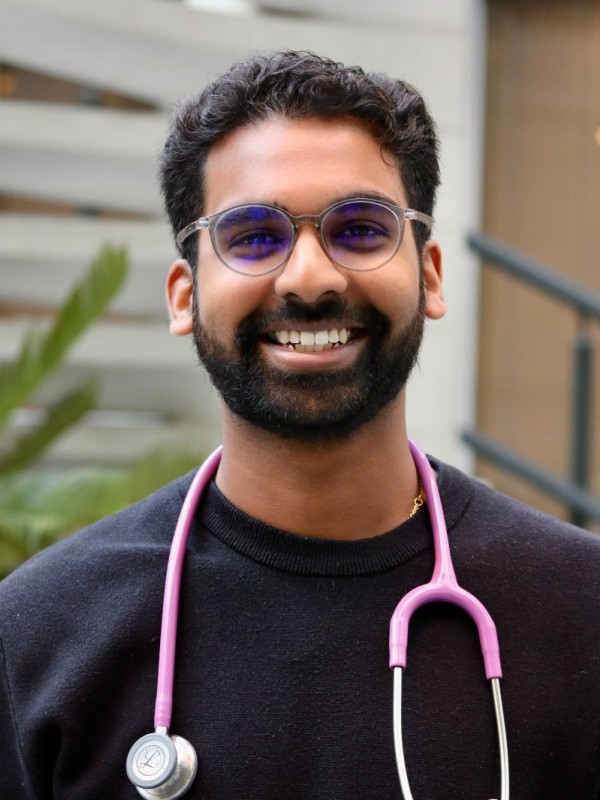
Riythaesh
Student - Medicine (Graduate Entry) BMBS
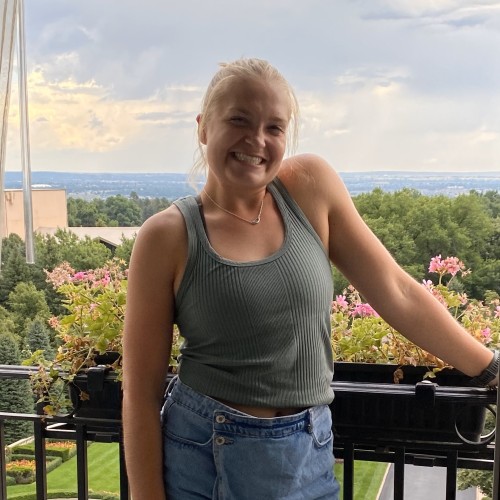

Callan
Student - Medicine (Graduate Entry) BMBS
Learn more about the qualifications we typically accept to study this course at Surrey.
Entry requirements
Minimum of a 2:1 UK honours degree (or equivalent). The degree can be in any subject and all academic disciplines will be given equal consideration in the admissions process.
GCSE (or equivalent): Maths and English at grade C or above.
Do I meet the requirements for this course?
We require you to submit a full application so that we can formally assess whether you meet the criteria published. Unfortunately, we are unable to provide an outcome based on an enquiry (via email, webform enquiry, phone or live chat).
Declaration of criminal convictions
This is a regulated course that requires declaration of criminal convictions at the application stage, please visit our criminal convictions web page for more information.
Fitness to practise
As this course leads to registration with a professional body, you’re required to abide by a professional code of conduct. When you accept an offer of a place at the University of Surrey, you are agreeing to comply with this code of conduct. Allegations of failing to do so will trigger an internal investigation in line with our regulations for fitness to practise.
Deferred entry
The course does not accept applications for deferred entry.
English language requirements
IELTS Academic: A score of at least 7.0 overall and at least 7.0 in all components.
View the other English language qualifications that we accept.
If you do not currently meet the level required for your programme, we offer intensive pre-sessional English language courses, designed to take you to the level of English ability and skill required for your studies here.
Selection process
Please see our full Admissions Process document (PDF) for 2026/7 as a guide on what to expect.
Stage 1: Preliminary shortlisting
Applications received from UCAS are initially considered on the basis of academic achievement and achieved/predicted grades. Most applications which do not meet the minimum requirements will be rejected at this stage. Applications with incomplete information may also be rejected at this stage.
Stage 2: Aptitude test - GAMSAT
We accept the GAMSAT aptitude test as stage 2 of our process. We will also consider applicants that have taken UCAT providing they have a degree in Biochemistry, Biology, Biomedical Science, Chemistry or Natural Sciences. All applicants must take one of these tests as part of their application.
GAMSAT is an online aptitude test that is required by applicants before they apply. More details on the test can be found on the GAMSAT website.
UCAT is an online aptitude test that is required to have been completed by applicants over the summer before they apply. More details regarding the test can be found on the UCAT website. UCAT will send your scores directly to the University where your score will be assessed. If we do not receive your UCAT score, we will contact you to confirm you have taken the test and liaise with UCAT. If you have not taken the test and we have no score for you, your application will be rejected at this stage.
The completed tests are given an overall mark and placed into one of three categories accordingly:
- Invite to interview
- Hold in waiting list
- Reject.
All medicine programmes are highly competitive with limited places. Therefore, it is possible that a number of very good applicants will not be invited to interview due to the very high number of quality applications.
Registration for the UCAT 2025 and GAMSAT September 2025 are now open.
Stage 3: Multiple mini interviews
Once short-listed for interview you will be sent an invitation to an interview day with the University of Surrey, we will have a selection of virtual interview events (dates to be confirmed) all applicants must take part in a Multiple Mini Interview cycle that lasts under one hour.
Candidates will be assessed and independently marked against agreed criteria on each of the MMI stations and placed within one of three categories:
- Offer
- Hold in waiting list
- Reject.
All offers are made subject to satisfactory Occupational Health clearance and appropriate vaccinations.
Fees
Explore UKCISA’s website for more information if you are unsure whether you are a UK or overseas student. View the list of fees for all undergraduate courses.
Payment schedule
- Students with Tuition Fee Loan: the Student Loans Company pay fees in line with their schedule.
- Students without a Tuition Fee Loan: pay their fees either in full at the beginning of the programme or in two instalments as follows:
- 50% payable 10 days after the invoice date (expected to be during October to November of each academic year).
- 50% in January of the same academic year.
- The exact date(s) will be on invoices. Students on part-time programmes where fees are paid on a modular basis cannot pay fees by instalment.
- Sponsored students: must provide us with valid sponsorship information that covers the period of study.
Additional costs
- Accommodation and living costs are not included in your tuition fees.
- You’ll be required to travel to each of your placement locations and cover the upfront costs associated with this. These costs will vary depending on the location however the University will reimburse any travel expenses incurred over and above your normal journey to the University. You aren’t required to have a driving licence but having one and a vehicle will make it easier for you to commute to your allocated practice, especially if you’re happy to drive yourself and other students. You can also claim additional expenses for any passengers.
- Uniform, PPE and equipment requirements are currently being finalised, we anticipate these costs will not exceed £150 per student.
- The University will meet the cost of one DBS check, completed at the start of each new student’s programme or earlier where applicants indicate they have a conviction in their application. The DBS check is a programme requirement and can be completed using main branches of the Post Office, where there will be an administration fee.
- Students will be expected to sign up to the UK DBS Update Service following their initial DBS check. This has an annual cost of approximately £16 which students would be expected to cover.
- International students may be required to provide Criminal Background certificates. Students are expected to cover costs associated with this process. This is separate to the DBS check.
These additional costs are accurate as of September 2025 and apply to the 2026 year of entry. Costs for 2027 entry will be published in September 2026.
Scholarships and bursaries
Discover what scholarships and bursaries are available to support your studies.
Clinical placements
Clinical placements are integral to the programme, running throughout the four years and providing students with extensive experience of a wide range of clinical settings. We have agreements in place with a number of highly reputable NHS trusts and primary care providers to provide you with valuable first-hand experience to underpin your learning.
Placements begin from the first year of the programme, with opportunities to learn in GP and community mental health settings. In years two and three you will undertake more substantial clinical rotations, following carefully curated pathways to provide experience of a range of specialities from cancer and haematology to child health. Community placements provide experience of the multi-professional nature of medicine and highlight the importance of the healthcare team.
In your final year, you will undertake longer clinical placement blocks including an elective and student assistantships. These placements are designed to consolidate your learning as you progress towards the transition to F1 doctor.
All our placement providers are located within commutable range of the University (with all travel costs above your usual commute reimbursed by the University). You will also benefit from the support of a dedicated clinical placements team to ensure you are getting the very best experience possible.
Find more information on our placement partners:
- Ashford and St Peters Hospitals NHS Foundation Trust
- Frimley Health and Care ICS
- NHS Frimley Health Foundation Trust
- Surrey and Borders Partnership NHS Foundation Trust
- Surrey and Sussex Healthcare NHS Trust
- Surrey Heartlands ICS
- The Royal Surrey NHS Foundation Trust.
Elective opportunities in different countries and health economies can be considered in your final year.
Apply for your chosen course online through UCAS, with the following course and institution codes.
About the University of Surrey
Need more information?
Contact our Admissions team or talk to a current University of Surrey student online.
Terms and conditions
When you accept an offer to study at the University of Surrey, you are agreeing to follow our policies and procedures, student regulations, and terms and conditions.
We provide these terms and conditions at offer stage and are shown again at registration. You will be asked to accept these terms and conditions when you accept the offer made to you.
Disclaimer
This online prospectus has been published in advance of the academic year to which it applies.
Whilst we have done everything possible to ensure this information is accurate, some changes may happen between publishing and the start of the course.
It is important to check this website for any updates before you apply for a course with us. Read our full disclaimer.
